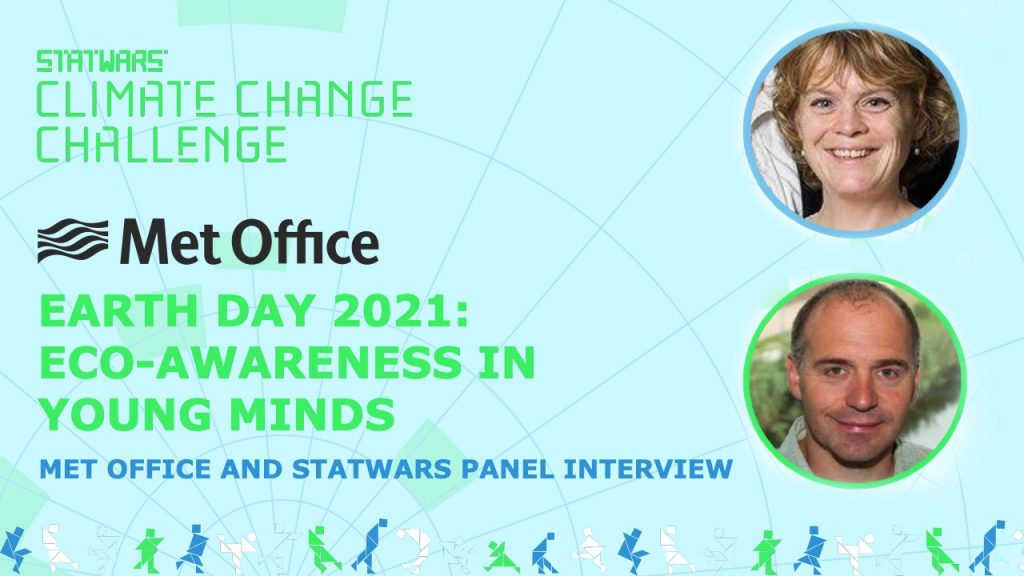MET OFFICE AND STATWARS PANEL INTERVIEW
In 1970, the first Earth Day occurred, giving a voice to the emerging environmental consciousness of the time. Now, in 2021, more than a billion individuals have played their part in raising awareness for our planet, alongside partners in 192 countries. To play our part, Primary Engineer® partnered with the Met Office on the 22nd of April for a panel interview on the use of data in their climate work. Chris Rochester, UK Director at Primary Engineer®, hosted the event alongside two incredible professors!
WHO ARE THEY?
Professor Richard Betts is a climate scientist at the Met Office and the University of Exeter. His main studies are how the ecosystems of the world can help reduce the build-up of CO2 in the atmosphere. Richard also works with researchers in other science fields in using computer models to assess the future risks that climate change poses to people and society. He is working with experts around the globe on a large international report for the Intergovernmental Panel on Climate Change (IPCC), which helps the United Nations encourage countries to take action to halt global warming.
Professor Lea Berrang Ford is an epidemiologist, a geographer, and an environmental scientist at the University of Leeds. She is an expert in all thing’s climate related, particularly impacts, vulnerabilities and adaptations. Lea is especially interested in how diseases are carried by insects, and those that spread between animals and humans. She works with people across the planet to help policy makers and organisations understand how we can adjust existing health and social systems to be more climate resilient. That means understanding how health and the way we live interact with climate and weather.
QUESTION TIME
Although there were lots of incredible questions asked, we thought it would be a good opportunity to highlight a couple of unique ones to pique your interest. One school asked “What kind of qualifications do you need to be a scientist at the Met Office? Also, what are some new, developing careers coming to the Met Office?” and Richard was happy to explain: “So, if you want to be a scientist in the Met Office, most of us have degrees in stuff like maths and physics, but not everyone. Some of us have degrees in other aspects of science like biology or ecology or geography and so on. Because we do the computer modelling and calculations, most of us are mathematicians or physicists. (…) If you want to be a specialist, science is the thing [to do]. If you want to work elsewhere in the office, pretty much anything [can get you involved].”
Specifically for Lea, some pupils were asking: “Are batteries bad for the environment and how can they be revamped or improved to be better for the environment?” In response, Lea explained that “[That’s] a great question! If we think about this with the Reduce, Reuse, Recycle; it would be better if we simply used less. If you’re talking about the small AA ones, the damage is typically in chemical waste. There are also industrial battery approaches, and there are certainly efforts being made to come up with different technologies. There is no easy answer to that. The first thing is to reduce our energy use, then the energy that we DO use is from sustainable resources.”
GET INVOLVED
We’d like to take a moment to thank the wonderful viewers that joined our panel interview with the Met Office. Your questions were thought-provoking, interesting and really probed into the nitty gritty of climate change and our planet. Luckily, if you weren’t able to make it to the live event, we have uploaded the session to our STATWARS YouTube channel so that you can enjoy it freely.
To get involved in any of our upcoming interviews for STATWARS, make sure to watch out on our website for registration details.


